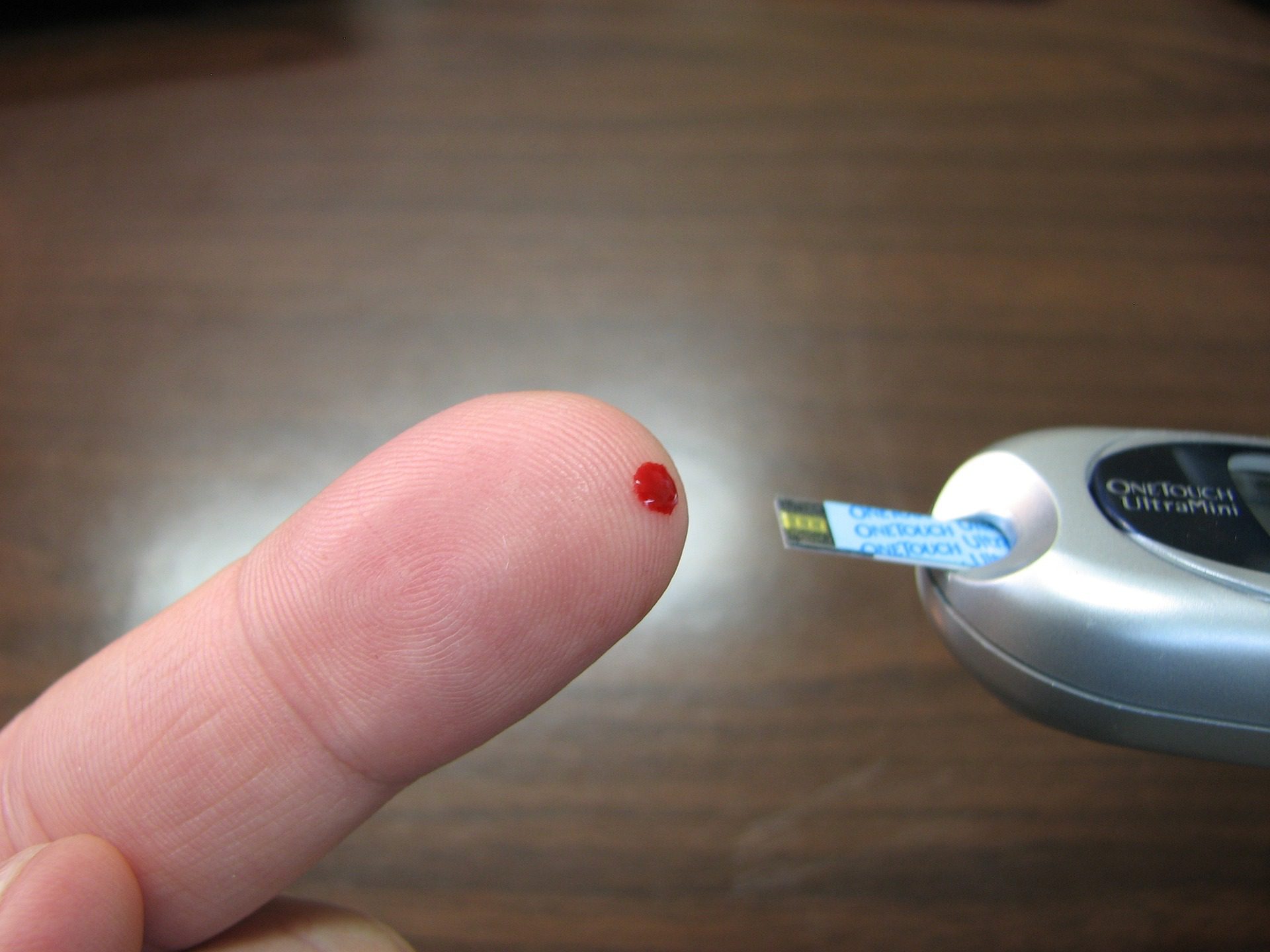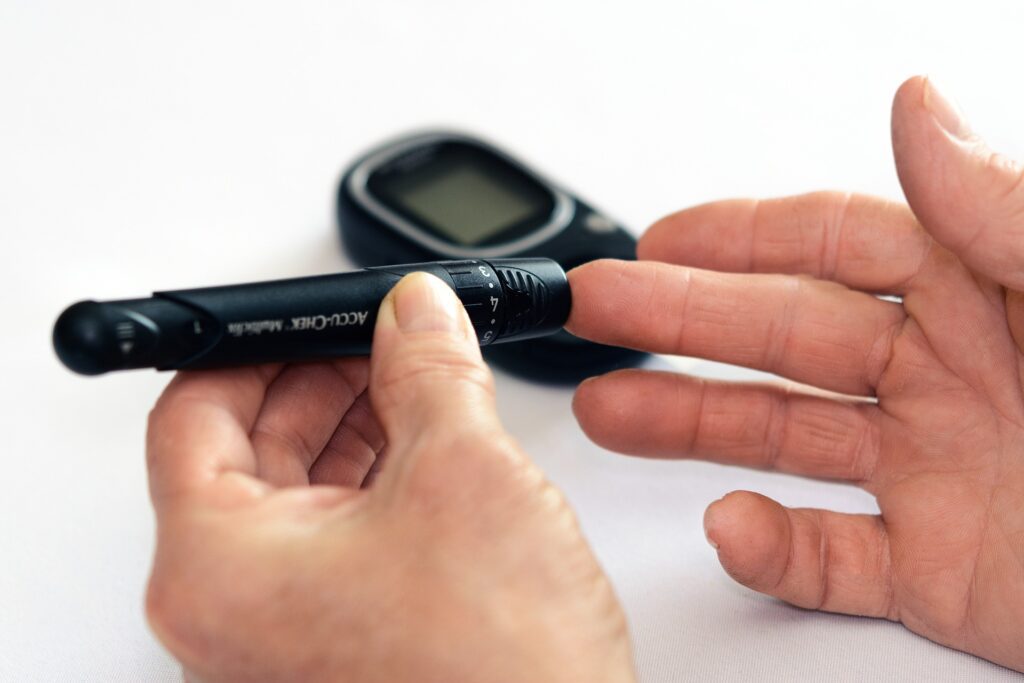
Does Alcohol Impact Blood Sugar Levels? yes?
admin
- 0
- 6
Alcohol affects blood sugar for up to 24 hours after consumption. Alcohol consumption has a significant impact on blood sugar levels.
When you consume alcohol, your liver shifts its focus from regulating blood sugar to metabolizing the alcohol. This process can lead to fluctuations in blood sugar levels, both during and after alcohol consumption. In fact, alcohol can lower blood sugar levels, which is why it is recommended that individuals with diabetes consume alcohol in moderation and with caution.
It is crucial to understand the effects of alcohol on blood sugar to prevent potential complications and manage your overall health effectively. Let’s delve deeper into the specifics of how alcohol affects blood sugar and what precautions you should consider when consuming alcoholic beverages.

Table of Contents
ToggleUnderstanding Alcohol’S Impact On Blood Sugar Levels
Alcohol And Its Effect On Blood Sugar Levels
Alcohol consumption can have a significant impact on blood sugar levels, making it crucial to understand how it affects our bodies. Here, we will delve into the relationship between alcohol consumption and blood sugar, as well as the role of alcohol metabolism in impacting blood sugar levels.
So, let’s explore this fascinating topic further.
The relationship between alcohol consumption and blood sugar:
- Alcohol can cause a drop in blood sugar levels: When we consume alcoholic beverages, especially on an empty stomach, our blood sugar levels can drop significantly. This is because alcohol is processed by the liver and takes precedence over the liver’s regulation of blood sugar. The result? A drop in blood sugar levels, sometimes leading to hypoglycemia.
- Different types of alcohol have varying effects: Not all alcoholic drinks affect blood sugar levels in the same way. For example, straight liquor like vodka or whiskey is more likely to cause a drop in blood sugar, while others like sweet cocktails or sugary mixers can cause a spike initially and then a drop.
The role of alcohol metabolism in impacting blood sugar levels:
- Alcohol metabolism slows down glucose production: Our bodies prioritize the metabolism of alcohol over other processes, including glucose production. When alcohol is present in our system, our liver is busy breaking it down and is less focused on producing glucose. As a result, our blood sugar levels can be affected.
- Alcohol can disrupt normal insulin function: Insulin is a hormone that helps regulate blood sugar levels. Alcohol consumption can interrupt insulin production and action, leading to blood sugar imbalances.
- The combination of alcohol and carbohydrate-rich foods: Consuming alcohol with foods that are high in carbohydrates can have a delayed impact on blood sugar levels. Initially, blood sugar may rise due to the carbohydrates in the food, but later, the liver’s focus on alcohol metabolism can cause levels to drop unexpectedly.
Understanding how alcohol impacts blood sugar levels is crucial for individuals with diabetes, those at risk for hypoglycemia, and anyone concerned about maintaining stable blood sugar levels. It’s essential to approach alcohol consumption mindfully and to make informed choices about when and how much to drink.
Remember to consult with your healthcare provider if you have any specific concerns or questions. So, drink responsibly and be aware of how alcohol can affect your blood sugar levels.
Immediate Effects Of Alcohol On Blood Sugar Levels
Alcohol consumption can have a significant impact on blood sugar levels, particularly in individuals with diabetes. Understanding the immediate effects of alcohol on blood sugar levels is crucial for managing diabetes and making informed choices when it comes to drinking.
In this section, we will explore how alcohol affects blood sugar levels right after consumption. Let’s dive in.
The Rapid Increase In Blood Sugar Levels After Alcohol Consumption:
- Alcohol is quickly absorbed into the bloodstream, causing a rapid increase in blood sugar levels.
- The liver sees alcohol as a toxin and prioritizes its metabolism over other functions, such as regulating blood sugar.
- This prioritization leads to the liver temporarily halting the production and release of glucose, resulting in a rapid rise in blood sugar levels.
- The spike in blood sugar levels can be particularly pronounced for individuals who consume alcohol on an empty stomach.
How Alcohol Inhibits The Release Of Insulin:
- Insulin is the hormone responsible for regulating blood sugar levels.
- Alcohol inhibits the release of insulin from the pancreas, further exacerbating the spike in blood sugar levels.
- This reduction in insulin production can persist for several hours after alcohol consumption, prolonging the elevated blood sugar state.
- Individuals with diabetes who rely on insulin injections or medications may find it challenging to control their blood sugar levels after drinking alcohol.
The Risk Of Hypoglycemia For Individuals With Diabetes:
- While the immediate effect of alcohol is a spike in blood sugar levels, there is a subsequent risk of hypoglycemia (low blood sugar) for individuals with diabetes.
- Once the liver’s metabolism of alcohol is complete, it may overcompensate by producing more insulin, leading to a drop in blood sugar levels.
- This can be particularly dangerous for individuals with diabetes who are already at risk of hypoglycemia.
- It is essential for individuals with diabetes to monitor their blood sugar levels closely after alcohol consumption and take appropriate steps to prevent and treat hypoglycemia.
Understanding the immediate effects of alcohol on blood sugar levels is crucial for individuals with diabetes and those who are focused on maintaining stable blood glucose levels. Monitoring blood sugar levels, making informed drinking choices, and seeking medical advice are essential to managing diabetes and minimizing the potential risks associated with alcohol consumption.
Stay informed, stay healthy, and make choices that align with your overall well-being.
Duration Of Alcohol’S Impact On Blood Sugar Levels
Alcohol consumption can have a significant impact on blood sugar levels. Understanding how long these effects last is important for individuals managing their blood sugar levels, especially those with diabetes or prediabetes. In this section, we will explore the duration of alcohol’s impact on blood sugar levels, the time it takes for alcohol to be metabolized in the body, and the factors that influence how long alcohol affects blood sugar.
The Time It Takes For Alcohol To Be Metabolized In The Body
Alcohol undergoes a complex metabolic process in the body, and the time it takes for the body to fully metabolize alcohol can vary from person to person. Here are some key points about this process:
- On average, it takes about one hour for the body to metabolize one standard drink of alcohol. However, this can vary based on factors such as body weight, metabolism, and the type of alcohol consumed.
- Metabolism of alcohol primarily occurs in the liver, where enzymes break it down into less toxic substances that can be eliminated from the body.
- Drinking alcohol in excessive amounts can overwhelm the liver’s ability to metabolize it, leading to a prolonged presence of alcohol in the bloodstream.
The Extended Period Of Altered Blood Sugar Levels After Alcohol Consumption
While the body metabolizes alcohol, it can have a significant impact on blood sugar levels, particularly for individuals with diabetes or prediabetes. Here are some key points to consider:
- Alcohol can initially cause blood sugar levels to drop, as it inhibits the production of glucose in the liver.
- However, once the body has metabolized the alcohol, blood sugar levels may rebound and increase, especially if alcohol was consumed in larger quantities or combined with mixers high in sugar.
- The prolonged impact on blood sugar levels after alcohol consumption can range from several hours to even the next day, depending on individual factors and the amount of alcohol consumed.
Factors That Influence The Duration Of Alcohol’S Impact On Blood Sugar
Several factors can affect how long alcohol affects blood sugar levels. These include:
- Amount of alcohol consumed: Generally, the more alcohol consumed, the longer it will take for the body to metabolize it and for blood sugar levels to return to normal.
- Food intake: Consuming alcohol with a meal can slow down its absorption and delay its effects on blood sugar levels.
- Medications: Some medications, such as those used to manage diabetes, can interact with alcohol and affect blood sugar regulation.
- Individual metabolism: Each person’s metabolism is unique, and factors such as age, weight, and overall health can influence how quickly alcohol is metabolized and its impact on blood sugar levels.
Understanding the duration of alcohol’s impact on blood sugar levels is essential for individuals managing their blood sugar levels. It is crucial to moderate alcohol consumption, be mindful of the type and quantity of alcohol consumed, and monitor blood sugar levels closely to maintain overall health and well-being.
Long-Term Effects Of Alcohol On Blood Sugar Levels
- ### chronic alcohol consumption and its impact on insulin resistance:
- Long-term alcohol consumption can lead to insulin resistance, a condition where the body’s cells become less sensitive to the effects of insulin.
- Insulin resistance hinders the body’s ability to regulate blood sugar levels, resulting in elevated levels of glucose in the bloodstream.
- Alcohol interferes with the proper functioning of insulin receptors, making it harder for insulin to transport glucose into the cells.
- This can lead to an increased risk of developing type 2 diabetes, obesity, and other metabolic disorders.
- Chronic alcohol consumption also contributes to the accumulation of fat in the liver, which further impairs insulin sensitivity.
The Development Of Type 2 Diabetes Due To Excessive Alcohol Intake:
- Excessive alcohol consumption is associated with an increased risk of developing type 2 diabetes.
- Alcohol not only affects insulin sensitivity but also disrupts the production and release of glucose from the liver.
- High alcohol intake over a prolonged period can lead to chronic inflammation, oxidative stress, and damage to pancreatic cells responsible for producing insulin.
- These factors, combined with the development of insulin resistance, can increase the likelihood of developing type 2 diabetes.
- Individuals with a family history of diabetes or those already at risk should exercise caution in their alcohol consumption.
The Importance Of Moderation In Alcohol Consumption For Blood Sugar Control:
- Moderate alcohol consumption, defined as up to one drink per day for women and up to two drinks per day for men, can actually have some benefits for blood sugar control.
- Some studies suggest that moderate alcohol intake can improve insulin sensitivity and reduce the risk of developing type 2 diabetes.
- However, it is crucial to strike a balance and avoid excessive alcohol consumption, as it can have detrimental effects on blood sugar levels.
- Monitoring blood sugar levels regularly and working closely with healthcare professionals can help individuals with diabetes or prediabetes to determine their tolerance for alcohol.
- It is important to note that alcohol can interact with certain diabetes medications, so it is essential to consult a healthcare provider for personalized recommendations.
Remember, moderation is key when it comes to alcohol consumption. Excessive and chronic alcohol intake can have adverse effects on blood sugar control, insulin sensitivity, and increase the risk of developing type 2 diabetes. Being mindful of your alcohol consumption and working closely with healthcare professionals can help maintain optimal blood sugar levels and overall health.
Managing Blood Sugar Levels When Consuming Alcohol
Alcohol consumption can have an impact on blood sugar levels, especially for individuals with diabetes. It is important to take steps to manage your blood sugar levels when choosing to drink alcohol. Here are some tips to help you navigate this situation:
Tips For Individuals With Diabetes Who Choose To Drink Alcohol:
- Always drink in moderation: Limit your alcohol consumption to moderate levels. Excessive drinking can cause a significant increase or decrease in blood sugar levels, making it difficult to manage your diabetes.
- Choose your drinks wisely: Opt for beverages with lower sugar content and avoid sugary cocktails or mixers. Stick to options like light beer, wine, or spirits mixed with sugar-free carbonated drinks, water, or diet mixers.
- Eat a balanced meal before drinking: Having a meal that consists of carbohydrates, protein, and healthy fats can help slow down the absorption of alcohol, preventing rapid changes in blood sugar levels.
- Stay hydrated: Alcohol can lead to dehydration, which can affect your blood sugar levels. Make sure to drink water throughout the evening to stay hydrated and prevent any unwanted spikes or lows.
Monitoring Blood Sugar Levels Before, During, And After Alcohol Consumption:
- Test your blood sugar frequently: Before drinking, check your blood sugar levels to ensure they are within your target range. Continue to monitor your levels throughout the evening and adjust your diabetes management accordingly.
- Be prepared with snacks: Have some healthy snacks on hand to prevent low blood sugar levels. Snacking on foods high in protein and fiber can help stabilize your blood sugar.
- Don’t skip meals: Even though alcohol may contain calories, it does not provide the necessary nutrients your body needs. Avoid skipping meals and continue with your regular meal plan to maintain stable blood sugar levels.
Seeking Medical Advice On Managing Blood Sugar Levels While Drinking:
- Consult your healthcare team: Reach out to your doctor or diabetes educator for personalized advice on managing your blood sugar levels while consuming alcohol. They can provide guidance tailored to your specific needs and help you create a plan to enjoy alcohol safely.
- Consider your medication: Ensure you understand how alcohol may interact with any medications you are taking. Certain diabetes medications can increase the risk of hypoglycemia when combined with alcohol, so it is crucial to be aware of these potential effects.
Remember, everyone’s body reacts differently to alcohol, so it’s important to monitor your own blood sugar levels and seek medical advice to ensure you are managing your diabetes effectively. By taking these precautions and being proactive, you can enjoy alcohol responsibly while keeping your blood sugar levels in check.
Frequently Asked Questions Of How Long Does Alcohol Affect Blood Sugar
How Long Does Alcohol Affect Blood Sugar Levels?
The effects of alcohol on blood sugar levels can vary depending on several factors, but typically alcohol can lower blood sugar levels for up to 24 hours after consumption. It can impair the liver’s ability to produce glucose, leading to hypoglycemia in individuals with diabetes.
Can Alcohol Increase Blood Sugar Levels?
While alcohol is known to lower blood sugar levels, certain alcoholic beverages can actually increase blood sugar levels. Drinks with high sugar content, such as cocktails or sweet wines, can cause a spike in blood sugar levels due to the added sugars in the drink.
How Does Alcohol Affect Insulin Levels?
Alcohol consumption can affect insulin levels by impairing the liver’s ability to release stored glucose. This can lead to higher levels of insulin in the body, potentially causing an imbalance in blood sugar levels. It is important for individuals with diabetes to monitor their blood sugar closely when consuming alcohol.
Is It Safe To Drink Alcohol If I Have Diabetes?
Moderate alcohol consumption may be safe for individuals with diabetes, but it is important to monitor blood sugar levels closely. Alcohol can interfere with diabetes medication and the body’s ability to regulate blood sugar levels. It is best to consult a healthcare professional to determine what is safe and appropriate for you.
Can Alcohol Affect Blood Sugar Even In Non-Diabetic Individuals?
Yes, alcohol can affect blood sugar levels in non-diabetic individuals as well. It can cause fluctuations in blood sugar levels as the body works to metabolize the alcohol. Monitoring blood sugar levels while consuming alcohol can help maintain stable levels and prevent any potential issues.
Conclusion
Understanding the impact of alcohol on blood sugar levels is crucial for anyone looking to manage their overall health. Alcohol consumption can cause both short-term and long-term effects on blood sugar. In the short term, it can lead to immediate drops in blood sugar levels, putting individuals at an increased risk of hypoglycemia.
Furthermore, excessive alcohol intake can disrupt the body’s ability to properly regulate blood sugar, leading to long-term complications such as insulin resistance and diabetes. Additionally, alcohol can increase appetite and interfere with healthy food choices, further exacerbating blood sugar control issues.
It is important for individuals with diabetes or those at risk of developing it to be mindful of their alcohol consumption and monitor their blood sugar levels carefully. By understanding the impact of alcohol on blood sugar and making informed choices, individuals can prioritize their health and maintain better control over their blood sugar levels.



